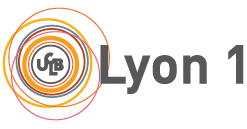In addition to target-oriented chemistry, where the chemist seeks to obtain a target, molecular or supramolecular, with a precise and well-defined structure, an emerging branch of modern organic chemistry studies the autonomous creation and evolution of supramolecular systems and dynamic systems in an aqueous environment and with only minimal intervention of the researcher. Three main classes of biomolecules will be studied:
• Lipids (fatty acids, phospholipids, terpenes, steroids)
• Peptides (having a defined or random sequence of amino acids)
• Nucleotides (syntheses of N-heterocycles, carbohydrates and their phosphorylation)
For each of these families a comparison will be made between: biosynthesis (without dwelling on the enzymatic aspect), classical directed synthesis, and spontaneous abiotic synthesis, that is to say without enzyme, without protective groups, in water. Conditions for the formation of long carbon chains and dehydrating polymerization in water will be studied. The interest of complex mixtures of biomolecules (template effects, anchoring and compartmentalization) and their micro- and nanometric assembly (vesicles, bilayers) will be approached, as well as the use of advanced analysis techniques (LC-MS, fluorescence microscopy, and so forth).
The exam modus (unlike all other SCSC courses) is "open book", where the students' notes, remarks and the printed student's support documents are allowed during the exam.












